
From the “Monodramitic” project by photographer Daisuke Takakura
We haven’t figured out our morality when it comes to human clones. Should we make them or ban them? Should clones be treated like “normal” humans? How do we raise them? How does one deal with an illegal clone, or does the idea of being an illegal human even make sense?
Maria Arena awakens in a cloning vat streaked with drying blood. She has no memory of how she died. This is new; before, when she had awakened as a new clone, her first memory was of how she died.
Maria’s vat is one of seven, each one holding the clone of a crew member of the starship Dormire, as they cruise space far from Earth. Each clone waits for its previous incarnation to die so it can awaken. And a surprising number of clones are waking, suggesting there’s a killer on the loose.
On the surface, the novel presents an unexceptional pulp, post-apocalypse science fiction action tale entitled Lord of the Swastika. However, this is a pro-fascism narrative written by an alternate-history Adolf Hitler, who in this timeline emigrated from Germany to the United States in 1919 after the Great War, and used his modest artistic skills to become first a pulp-science fiction illustrator and later a successful science fiction writer, telling lurid, purple-prosed adventure stories under a thin SF-veneer.
You follow all that? Really? Then you’re going to have to explain it to me.
“We are forced, insofar as we can continue to read the book seriously, to think… about ourselves: our moral assumptions, our ideas of heroism, our desires to, lead or to be led, our righteous wars.”
— Ursula K. Le Guin, science fiction author
Far out from Earth, two sister planets, Saint Anne and Saint Croix, circle each other in an eternal dance. It is said a race of shape-shifters once lived here, only to perish when men came. But one man believes they can still be found, somewhere in the back of the beyond.
Author Wolfe interweaves three tales: the son of a mad genius discovers his hideous heritage: a young man quests for his darker half; and a scientist endures a nightmarish imprisonment (this is the story with clones). These tales reveal unexpected truths about this strange and savage alien landscape.
“SF for the thinking reader… The style is highly literate and the ideas sophisticated and handled with sensitivity.”
— Amazing SF
Humanity has solved its energy shortages, cleaned up the environment, and created far-flung colony worlds. The keys to this empire belong to the powerful North family—composed of successive generations of clones. Yet these clones are not identical. For one thing, genetic errors have crept in with each generation. For another, the original three clone “brothers” have gone their separate ways, and the branches of the family are now friendly rivals more than allies.
Or maybe not so friendly. At least that’s what the murder of a North clone in the English city of Newcastle suggests to Detective Sidney Hurst. Sid would like nothing better than to hand off this hot potato of a case. The way he figures it, whether he solves the crime or not, he’ll make enough enemies to ruin his career.
Now Sid must navigate through a Byzantine minefield of competing interests within the police department and the world’s political and economic elite… all the while hunting down a brutal killer poised to strike again.
“A perfect introduction to [Hamilton’s] gifts for character design, dialogue, and sheer, big-idea-driven storytelling.”
—Booklist (starred review)
Jack Randall is a dangerous veteran of a savage war. For the last five years, he’s been hiding out on a Spares Farm, guarding those who’ve been prisoners from birth. Now he’s on the run with seven of the Farm’s inmates (well, six and a half), and the people who own them will do anything to get them back. What’s worse, Jack is on a head-on collision course with a cold-blooded killer with one purpose: to cancel Jack once and for all. Jack has a tough decision to make: keep running or even the score. Either way spells trouble… the kind of trouble most people run screaming from.
“[A] compulsively readable melding of hardboiled narrative and hardware invention.”
— Publishers Weekly
After the audacious prison camp escapade described in Borders of Infinity, Miles Vorkosigan is on the run from the Cetagandans, who aren’t about to take that kind of thing lying down. The worst of it is, Miles and his friends are starting to see double (even though their vision is fine), and it takes a while to find out who is responsible.
Brothers in Arms is number 8 of 17 in the long-running Vorkosigan Saga Series.
In this sequel to the wildly popular Old Man’s War, the universe has become far more dangerous for humanity. Three races that humans have clashed with before have allied to halt our expansion into space. Their lynchpin: the turncoat military scientist Charles Boutin, who knows the Colonial Defense Forces’ biggest military secrets. To prevail, the CDF must find out why Boutin did what he did.
Jared Dirac is the only human who can provide answers—a superhuman hybrid, created from Boutin’s DNA, Jared’s brain should be able to access Boutin’s electronic memories. But when the memory transplant appears to fail, Jared is given to the Ghost Brigades.
At first, Jared is a perfect soldier, but as Boutin’s memories slowly surface, Jared begins to intuit the reasons for Boutin’s betrayal. As Jared desperately hunts for his “father,” he must also come to grips with his own choices. Time is running out: The alliance is preparing its offensive, and some of them plan worse things than humanity’s mere military defeat…
Alive and hiding in South America, the fiendish Nazi Dr. Josef Mengele gathers a group of former colleagues for a horrifying project―the creation of the Fourth Reich. Barry Kohler, a young investigative journalist, gets wind of the project and informs famed Nazi hunter Ezra Lieberman, but before he can relay the evidence, Kohler is killed.
Lieberman must discover why Mengele has marked a number of harmless aging men for murder and why were they killed by six former SS men dispatched from South America by the most wanted Nazi still alive, the notorious “Angel of Death.” Lieberman must answer these questions and stop the killings, though he himself is aging and thought by some to be losing his grip on reality.
Duncan Makenzie is on a trip to Earth from his home on Titan, ostensibly for a diplomatic visit to the U.S. for its 500th birthday, but really in order to have a clone produced of himself.
“Arthur C. Clarke at the height of his powers.”
— The New York Times
Six million years ago, at the dawn of the star-faring era, Abigail Gentian fractured herself into a thousand male and female clones, which she called shatterlings. But now, someone is eliminating the Gentian line. Campion and Purslane—two shatterlings who have fallen in love and shared forbidden experiences—must determine exactly who, or what, their enemy is, before they are wiped out of existence.
“Intriguing ideas and competent characterization make this a fine example of grand-scale relativistic space opera.”
— Publishers Weekly
A brilliant young scientist rises to power on Cyteen, haunted by the knowledge that her predecessor and genetic duplicate died at the hands of one of her trusted advisors.
“A psychological novel, a murder mystery and an examination of power on a grand scale, encompassing light years and outsize lifetimes.”
— Locus
In a perilous future where disposable duplicate bodies fulfill every legal and illicit whim of their decadent masters, life is cheap. No one knows that better than Albert Morris, a brash investigator with a knack for trouble, who has sent his own duplicates into deadly peril more times than he cares to remember.
But when Morris takes on a ring of bootleggers making illegal copies of a famous actress, he stumbles upon a secret so explosive it has incited open warfare on the streets of Dittotown.
To uncover the truth, Morris must enter a shadowy, nightmare world of ghosts and golems where nothing—and no one—is what they seem, memory itself is suspect, and the line between life and death may no longer exist.
In this Hugo and Locus winner from 1976, an isolated, post-holocaust community attempts to preserve itself through a perilous experiment in cloning. Though a thoughtful read, there may be more plot holes than modern readers will be willing to accept.
The title of the book is a quotation from William Shakespeare’s Sonnet 73:
That time of year thou mayst in me behold
When yellow leaves, or none, or few, do hang
Upon those boughs which shake against the cold,
Bare ruin’d choirs, where late the sweet birds sang.
In me thou see’st the twilight of such day
As after sunset fadeth in the west;
Which by and by black night doth take away,
Death’s second self, that seals up all in rest.
In me thou see’st the glowing of such fire,
That on the ashes of his youth doth lie,
As the death-bed whereon it must expire,
Consum’d with that which it was nourish’d by.
This thou perceiv’st, which makes thy love more strong,
To love that well which thou must leave ere long.
Matteo Alacrán was not born; he was harvested.
His DNA came from El Patrón, lord of a country called Opium—a strip of poppy fields lying between the United States and what was once called Mexico. Matt’s first cell split and divided inside a petri dish. Then he was placed in the womb of a cow, where he continued the miraculous journey from embryo to fetus to baby. He is a boy now, but most consider him a monster—except for El Patrón. El Patrón loves Matt as he loves himself, because Matt is himself.
Cloud Atlas is six narratives, taking place in the 1850s, 1930s, 1970s, and several dystopian futures.
“[David] Mitchell is, clearly, a genius. He writes as though at the helm of some perpetual dream machine, can evidently do anything, and his ambition is written in magma across this novel’s every page.”
— The New York Times Book Review
Not since Isaac Asimov has anyone combined SF and mystery so well. A very rich man dies unexpectedly, and when his backup copy is animated, he hires Takeshi Kovacs to find out why.
Morgan creates a gritty, noir tale that will please Raymond Chandler fans, an impressive accomplishment in any genre.
“[A] fast-paced, densely textured, impressive first novel.”
— Publishers Weekly
Like Frankenstein, Jurassic Park explores the unintended consequences of biological tinkering.
I’m going to assume you know the story, and instead tell you how Michael Crichton realized “there is no pressing need to create a dinosaur,” except perhaps for entertainment. Thus, the idea of an amusement park was born.
The first drafts of Jurassic Park were told from the point of view of a child, but fortunately, the author’s friends told him to change it.
As children, Kathy, Ruth, and Tommy were students at Hailsham, an exclusive boarding school secluded in the English countryside. It was a place of mercurial cliques and mysterious rules where teachers were constantly reminding their charges of how special they were.
Now, years later, Kathy is a young woman. Ruth and Tommy have reentered her life. And for the first time she is beginning to look back at their shared past and understand just what it is that makes them special—and how that gift will shape the rest of their time together.
I’d tell you more about how exactly this book involves clones, but it’d give too much away.
Best Novel of 2005
— Time Magazine
Both Brave New World and 1984 saw dystopian futures, but Huxley seems to have gotten much of it right (though Orwell did nail the surveillance state). According to social critic Neil Postman:
“What Orwell feared were those who would ban books. What Huxley feared was that there would be no reason to ban a book, for there would be no one who wanted to read one. Orwell feared those who would deprive us of information. Huxley feared those who would give us so much that we would be reduced to passivity and egotism… Orwell feared we would become a captive culture. Huxley feared we would become a trivial culture, preoccupied with some equivalent of the feelies, the orgy porgy, and the centrifugal bumblepuppy.”
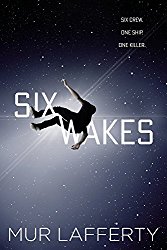
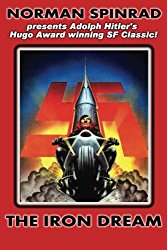

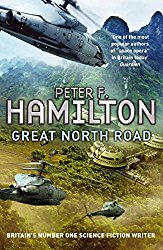
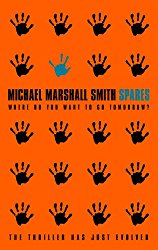
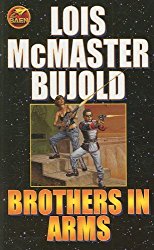

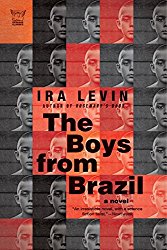
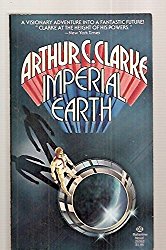


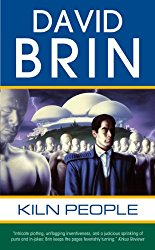

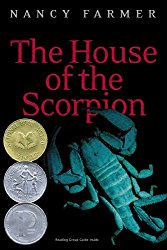
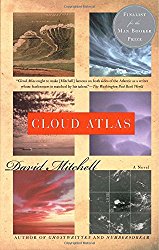
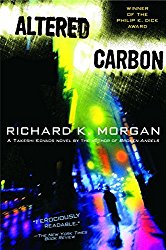

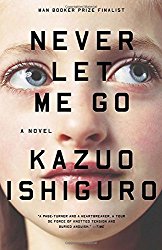

Where is mindscan?
In Mindscan, it looks like consciousness is downloaded into an android. That’s pretty close to a clone, but not quite. It looks like a solid book, though.
House of Suns FTW!!
How about the most excellent Bobiverse books where the neurological image of Bob’s brain has been cloned many times for the Von Neumann starships.
Highly recommended.
Also _The Forever War_ (Haldeman).
https://www.amazon.com/Forever-War-Joe-Haldeman/dp/0312536631/
Voice of the Whirlwind?
Glory Season by David Brin has a society where clones are the norm. It follows the adventures of a lower class ‘var’ trying to find her niche in the world.
Another brilliant sci-fi that deals with cloning is THE WINDUP GIRL by Paolo Bacigalupi. https://www.goodreads.com/book/show/6597651-the-windup-girl
Love this book.
Been looking for a book I read in 2000ish. Rich scientists clone themselves to transplant their brains into when they get old. Any ideas ?
Read a book around 2015. It is about like batches of humans are produced but their ability to reproduce is taken away when they are supposed to go through puberty and they are brought to this place but their vehicle breaks and a couple survive and a girl lives with a family who hid so their reproductive rights aren’t taken away. It is a duology if I am not wrong